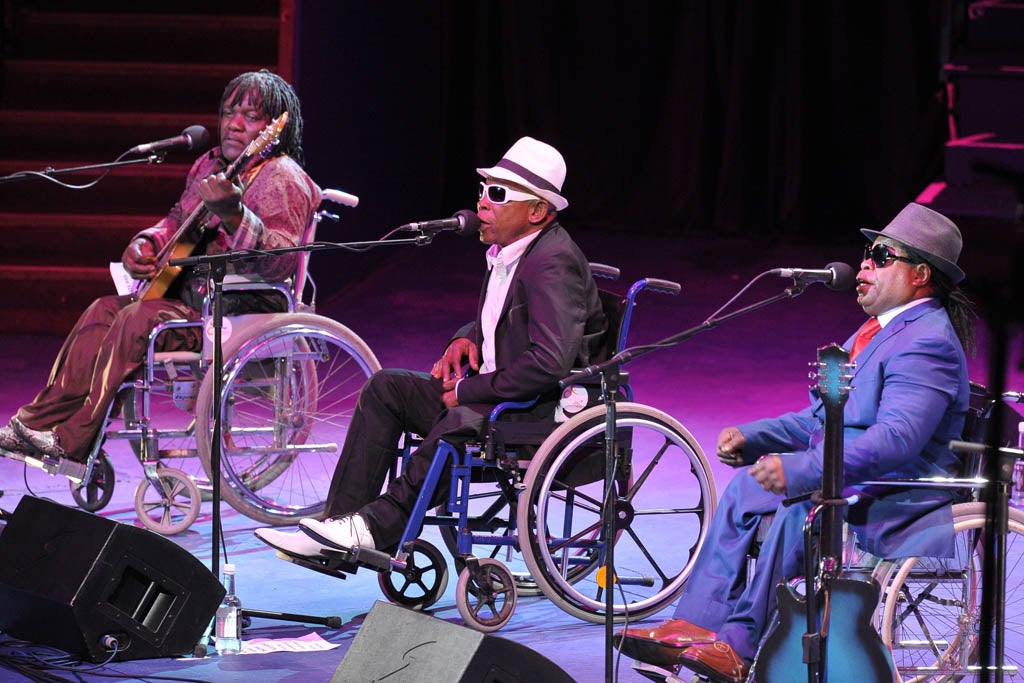Prom 73: Perahia, Vienna Phil, Haitink, ***/ Prom 74: Staff Benda Bilili, Baloji,*/ Prom 76: Benedetti, Calleja, BBCSO, Belohlavek,****

The last Proms gather in the strands. Prom 73 welcomed one more of the world’s great orchestras, the Vienna Philharmonic under Bernard Haitink, and if their account of Bruckner’s Ninth was soporific, they made a fine partnership with Murray Perahia in Beethoven’s Fourth Piano Concerto. But Prom 74 was shameful: the paraplegic street musicians of Staff Benda Bilili have a heart-warming back-story, but neither this nor any sense of their musicianship was allowed to surface.
They were simply plonked on stage, spiced up with some Belgian-Congolese rap, given deafening amplification, and left to sink or swim; the Radio 3 presentation was lamentable.
Proms people have never understood what riches they could mine from musical traditions just as sophisticated as their own: if it’s a token ‘world music’ night, any old stuff will do, so long as the Prommers can be got dancing.
But the Last Night was a sweet occasion, boosted by the fact that this was not only the end of the Proms but also the end of our Olympic annus mirabilis, with a posse of Team GB medallists in attendance.
In strictly musical terms the programme was a mixture of the predictable and the odd: flogging poor old Delius to the last, digging up a curiosity by Josef Suk - his bright and breezy choral ode ‘Towards a new life’ which won first prize in a competition at the 1932 Olympics - and kicking off with a sparky fanfare by the 23-year-old Liverpool composer Mark Simpson.
The stars of the evening were Nicola Benedetti and the Maltese tenor Joseph Calleja, and if Benedetti’s figure-hugging frocks drew as much applause as did her playing of Bruch’s Violin Concerto, Calleja’s artistry - particularly in Puccini’s ‘E lucevan le stelle’ - was a delight.
Moreover, he defused the triumphalism of ‘Rule Britannia’ by baring a Maltese cross on his chest as he led the singing, and with the auditorium ablaze with flags of other nationalities that message was well taken.
The evening’s other star was conductor Jiri Belohlavek, bidding a fond farewell to the BBC Symphony Orchestra which he had led for the past six years, and getting a rousing 5,500-voice ‘For he’s a jolly good fellow’ as a reward.
Join our commenting forum
Join thought-provoking conversations, follow other Independent readers and see their replies
Comments